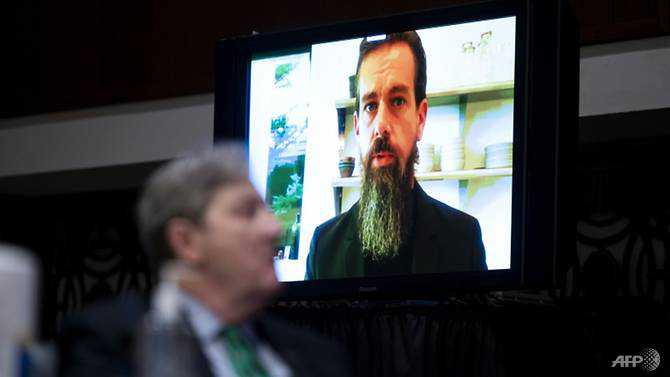Twitter, Facebook defend election guidelines at heated Senate hearing
18 November, 2020

Facebook and Twitter defended their handling of US election misinformation at a good heated congressional hearing on Tuesday (Nov 17) where one major senator assailed the systems to be the "ultimate editor" of political information.
The hearing, the second in less than a month, was included with social media under fire from both the left and the proper for his or her handling of political content throughout a bitter US presidential campaign.
Facebook chief Mark Zuckerberg and Twitter CEO Jack Dorsey testified remotely to the session, which was called to discuss "censorship and suppression of news content" and the "handling of the 2020 election" by the platforms.
Republican Senator Lindsey Graham, chairing the Judiciary Committee hearing, warned the CEOs that fresh regulations are had a need to ensure the social media giants are placed responsible for decisions on removing, filtering or perhaps allowing content to remain.
"It seems like you're the best editor," Graham said at the beginning as he took aim at decisions by the two platforms to limit the distribution of a New York Post content claiming to expose malfeasance involving the boy of President-elect Joe Biden through the campaign.
"When you have businesses that have the energy of governments (and) possess far more power than traditional mass media outlets, something must give."
Graham said regulations known as Section 230 that provides immunity to online offerings for content posted by others "has to be changed".
MEGAPHONE FOR FALSEHOODS
Democratic Senator Richard Blumenthal also called for reform of Section 230 while rebuking the firms for what he said was inadequate action against political misinformation by President Donald Trump.
"The president has employed this megaphone to spread vicious falsehoods within an apparent try to overturn the will of voters," Blumenthal said.
Blumenthal said the public media companies had "power much exceeding the robber barons of the previous Gilded Age" and also have "profited hugely by strip mining info about our individual lives and promoting hate speech and voter suppression".
Republican Senator Mike Lee meanwhile denounced what he called "instances where your platforms are going for a very distinctively partisan approach rather than a neutral someone to election related content moderation ... just days prior to the election."
From the other side, Blumenthal said that "Facebook, appears to get a record of earning accommodations and caving to conservative pressure" on content policies.
Democrat Dianne Feinstein questioned the adequacy of Twitter's labelling of unverified tweets such as for example those of Trump claiming an election success.
"Does that label carry out enough to prevent the tweets harms when the tweet continues to be visible and is not accurate?" the California senator asked.
230 RULES
Both Dorsey and Zuckerberg said these were available to reform on Section 230 but cautioned that the platforms should not be treated as "publishers" or traditional media.
"We do have to be very careful and thoughtful about alterations ... because going one route might box out different competitors and innovative startups," Dorsey said.
"Heading another might create a good demand for the possible volume of resources to take care of it. Going just one more might encourage even more blocking of voices ... I think that we can build upon (Section) 230."
DEFENDING THE FILTERS
Both CEOs defended their attempts to curb harmful misinformation through the election campaign.
"We strengthened our enforcement against militias, conspiracy systems, and other groupings to help stop them from using our system to organise violence or perhaps civil unrest found in the period after the election," Zuckerberg said.
He said Facebook removed false claims about polling circumstances and displayed warnings on a lot more than 150 million bits of content flagged by independent fact-checkers.
Both CEOs said they might study the spread of election misinformation while allowing independent academics to handle similar research.
Dorsey meanwhile said filtering in Twitter was not a result of bias, despite claims to the contrary by conservatives.
In filtering content material, "all decisions are created without needing political viewpoints, party affiliation, or political ideology," Dorsey said in his testimony.
"Our Twitter rules aren't predicated on ideology or a particular group of beliefs. We consider strongly in being impartial, and we make an effort to enforce our Twitter guidelines fairly."
Both platforms have begun limiting the reach of several of Trump's tweets, notably those where the president rejected his election defeat or questioned the integrity of the voting process.
Twitter and Facebook have been facing pressure to eliminate what many see seeing as harmful misinformation round the elections, while likewise fighting promises of suppression of selected political views.
Source: www.channelnewsasia.com
